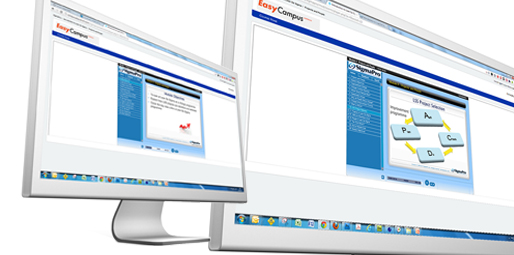Lean Six Sigma Online eLearning Training Course
This Lean Six Sigma Online eLearning Training Course introduces delegates to the ideas behind Lean Six Sigma, and explains why it has become such a successful approach to organisation improvement. You'll learn how to develop an integrated approach to improvement that can help make your organisation more efficient and effective.
The Online / eLearning Six Sigma Training Course purpose and aim
The Lean Six Sigma Online eLearning Training Course is designed to give a clear understanding of what Lean Six Sigma is, and why it has become such an important approach to improving organisation performance across almost every sector. It enables delegates to understand the benefits that Lean Six Sigma brings to the organisation, and explains how to assess the current status of the organisation prior to deployment planning. Delegates will learn how to:
- Explain to others how Lean Six Sigma developed
- Define the potential benefits of introducing Lean Six Sigma
- Describe the main methodologies and what the Lean SIx Sigma roles involve
- Quantify the links between process and financial performance
- Assess the current status of an organisation prior to planning a deployment
Who is this Lean Six Sigma Online Training Course for?
The programme assumes no prior knowledge of Lean Six Sigma, and is suitable for people from both service and industrial organisations wishing to understand and evaluate the suitability of the Lean Six Sigma approach to organisation improvement.
It is also suitable for those working in organisations already using Lean Six Sigma that need an overview of the approach.
Advantage of Six Sigma Online eLearning
- Courses can be studied at your own pace at a time to suit you
- Increased flexibility
- Self pacing - reduces stress and increases satisfaction
- Work in your own environment
- Save money on travel and accommodation
- Reduce time away from the office
- Interactivity engages users
- On demand availability - allowing you to complete training conveniently at off-hours or from home
What does the programme cover?
The programme is approximately 10 hours duration. It covers why Lean Six Sigma is successful, gives an explanation of the components of a Lean Six Sigma programme, and covers how to assess an organisation prior to deployment planning and evaluate the business case. The course includes helping delegates to prepare a business case.
Programme includes:
Introduction to Lean Six Sigma
- The results achieved through Lean Six Sigma
- The relationships between process & financial performance
- How to identify potential Lean Six Sigma projects
Lean Six Sigma in detail
- Basic concepts of waste and variability
- The People, Projects and Processes framework
- Overview of DMAIC and DMAD
Assessing the organisation
- A five stage framework for deployment
- Assessing an organisation's current state
- Developing individual and organisation plan
Course structure
The programme is a mix of quizzes, videos, interaction, individual and group exercises, case studies and real world examples. Accelerated Learning approaches are extensively used to ensure rapid learning and maximum knowledge retention. During the course students are encouraged to consider the applicability of the Lean Six Sigma approach within their own organisation.
Upon successful course completion students will receive a certificate of training competence.
Benefits to the organisation
- Six Sigma originated with Motorola, and started out as a quality improvement programme in the early 1980's. Motorola won the Malcolm Baldrige award for Excellence in 1988 and by the mid 1990's they had 60% of the mobile phone market, shareholder growth of 54% and were outperforming the NASDAQ index by 4:1
- GE adapted Six Sigma in 1995, and the annual report in 1997 quoted that "Six Sigma has spread like wildfire across the company, and it is transforming everything we do." After 10 years GE claimed savings of over $10Bn for their programme and in May 2009 were listed in number 1 slot on the Forbes list of the world's biggest companies. Between 1996 and 2005 the GE stock price has outperformed the NASDAQ index by almost 2:1
- Toyota Motor Corporation developed the Toyota production system. The same approach has been adopted in many organisations in different sectors, and has become known today as Lean. A UK study looked at 500 lean projects across a variety of industries over 5 years, and calculated the average benefit to the organisation of £150K per lean event. A global study of 3,000 six sigma projects by Mikel Harry showed the average value per project to be £100k










